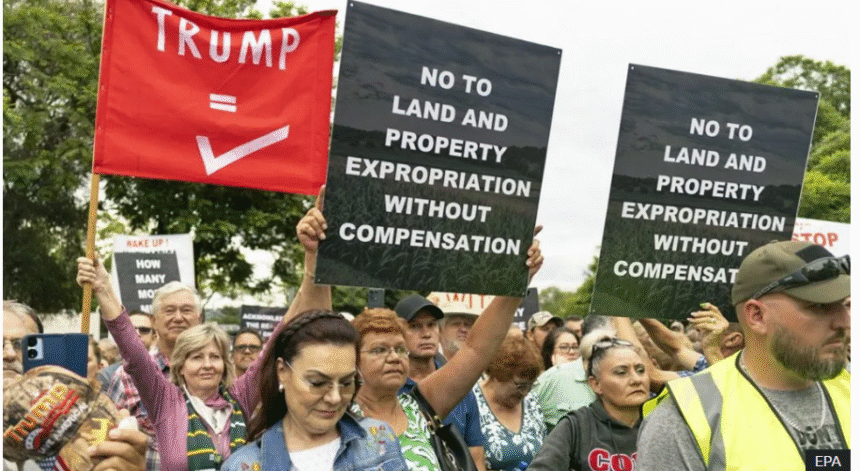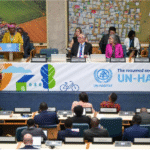By Mohamed Ghani
Johannesburg, South Africa – South African President Cyril Ramaphosa is facing a significant political backlash following the approval of the Expropriation Act, a law granting the state the power to expropriate some privately-owned land without compensation for landowners. The legislation, intended to address historical inequalities in land ownership, has sparked fierce debate within South Africa and drawn international criticism, most notably from former US President Donald Trump.
The law’s core aim is to accelerate land redistribution, a long-standing challenge in South Africa where a significant portion of farmland remains in the hands of the white minority, a legacy of the apartheid era. While Nelson Mandela’s government aimed to rectify this through a willing-buyer, willing-seller program, many argue that progress has been too slow and prohibitively expensive.
What Can Be Expropriated Without Compensation?
According to legal experts, expropriation without compensation (EWC) will be reserved for rare and specific circumstances deemed to be in the “public interest,” primarily related to the land reform program. Renowned South African law firm Werksmans Attorneys, in an analysis by Bulelwa Mabasa and Thomas Karberg, suggests EWC might also be utilized to access vital natural resources like minerals and water.
However, Mabasa and Karberg clarified that productive agricultural land is unlikely to be expropriated without compensation. They outlined potential EWC scenarios, including situations where:
- The owner is not actively using the land, holding it solely for “speculative purposes.”
- The owner has “abandoned the land by failing to exercise control over it.”
Even in these cases, the lawyers suggest that compensation might still be provided for buildings and natural resources present on the land. They emphasized that EWC is not exclusively targeted at rural or farmland, and could potentially apply to land in urban areas as well.
Shifting from Market Value to “Just-and-Equitable” Compensation
A significant change introduced by the new law involves a shift from “market value” compensation to “just-and-equitable” compensation for expropriated land. Legal experts argue the market value approach was inconsistent with the post-apartheid constitution.
The government hopes this revised compensation model will expedite land acquisition for public purposes, such as building schools or railways, which has surprisingly garnered less controversy.
Government Hopes for Easier Land Acquisition
The government hopes the new law will make it easier to resolve the more than 80,000 outstanding land claims in the country.
International and Domestic Reactions
The Expropriation Act has ignited strong reactions, both within South Africa and internationally. Former US President Donald Trump has voiced strong opposition, claiming the law discriminates against white farmers and equates to land “seizure,” accusations vehemently denied by the South African government. This led to Trump cutting aid to South Africa and imposing tariffs on its goods.
Domestically, the Democratic Alliance (DA), a major party in Ramaphosa’s coalition government, opposes “nil compensation” while agreeing with “just-and-equitable” compensation, adjudicated by a court of law.
Interestingly, Jaco Kleynhans of the Solidarity Movement, an influential Afrikaner lobby group, while opposed to the law, stated he does not believe it will lead to the “large-scale expropriation of farmland,” based on his interpretation of the legislation’s wording.
Challenges and Uncertainty
Despite the government’s intentions, Professor Ruth Hall, a land expert at the University of the Western Cape, believes the “political cost” of implementing the law has become too high, suggesting its future implementation is uncertain.
The South African Property Owners Association condemned the concept of giving “nil compensation” to an owner who held land for speculative purposes, adding it had no doubt the law would be “abundantly tested” in the courts.
The debate surrounding South Africa’s Expropriation Act underscores the complexities of addressing historical injustices while safeguarding property rights and ensuring economic stability. The future of land reform in South Africa remains a subject of intense scrutiny and legal challenges.









